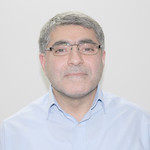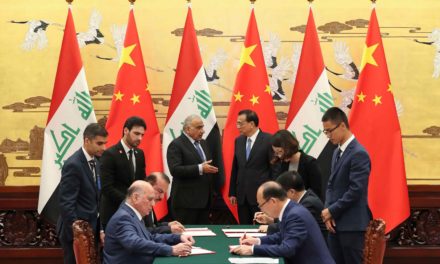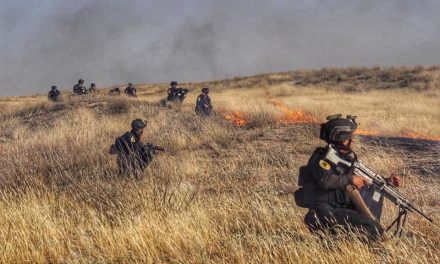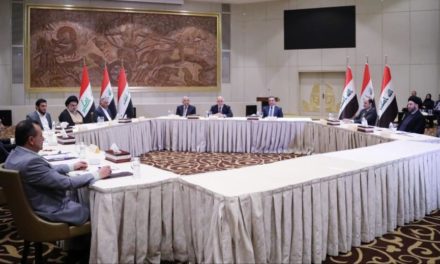(Shahbandar Cafe/Photo: AFP)
Following the Second World War, the Middle East has been cursed for nearly seven decades with seemingly never-ending conflicts and wars. This begs the question whether the region should really be expected to find peace and to show signs of sustainable development. No country in the region is bordered by a peaceful counterpart and all suffer from crises.
A more pressing question for Iraqis is where their country is heading and what is their place in history and what lies ahead for their nation?
Recently, an Iraqi cleric launched a widespread debate on social media, regarding his rejection of the measures taken by the country’s health authorities in their efforts to confront the coronavirus, which he described as a ‘deliberate ploy’ by certain actors to bring an end to religious practices, such as pilgrimages to holy shrines and congregations of the faithful. He believes these measures were being enforced as a means of weakening and enfeebling Islam. This rhetoric is in line with the waves of dialecticism and chaos caused by anti-Western individuals, whether from amongst the locals or from others in countries from around the world, who also believe that the fall of western civilisation is both imminent and inevitable
In the opposing camp, many from amongst the so called ‘enlightened’, the elite and the scholars of Iraq hold the view that the West, despite the numerous crises which have afflicted them over the past decade, is a pioneer and the source of modern science and the harbinger of democracy and freedom. This camp will not tolerate or countenance any opposition or denial of this Western, utopian world that is filled with magic and charm.
The ideas which the elite propagate in our country have largely been influenced by traditional, antagonistic, anti-Western, anti-occupation, post-2003 movements on the one hand, and anti-Iran rhetoric on the other, and for historical and political reasons, this type of thinking continues to grow and spread unabated throughout Iraq.
In my opinion, however, these ideas follow the classic model, which is in itself traditional; being neither modernist, nor universal, and certainly not pioneering. Instead, they learn more towards dominance and denial of the “other”.
Perhaps they are also incapable of providing answers to new questions and phenomena, and despite the high degree of certainty expressed by their opponents, these ideas nevertheless neglect the reality of the ethnic, religious and racial mix prevalent in today’s society.
History shows that almost a century ago, the enlightened, intellectual and religious movements in Iraq, through intellectual and social dynamism, successfully mounted the 1920 popular uprising, which transmuted into a revolution, indeed a Grand Revolution, against the British occupation. It began in Baghdad in the summer of 1920, in which Iraqis of all backgrounds; ethnic, religious and political, participated regardless of their social status or standing. The uprising or revolution was not isolated from, nor indeed unrelated to the political revolutions going on in neighbouring countries. Events in these neighbouring countries had both a direct and an indirect influence on the situation in Iraq: the 1919 revolution in Egypt; the bourgeoisie movements and other national forces in Syria and Lebanon of 1918; the constitutional reformist movement in Iran between 1905-1907; the constitutional movement, and the rise of ‘Kamalism’ in Turkey during 1919-1921. They all reverberated loudly in Iraq, where they awakened the aspirations of numerous groups from amongst the people of the time.
In the midst of the debacle facing Europe today, the voices of reformists, amongst them Western and European peace activists and followers of Vitalism, can be heard warning Western societies about the endemic decadence and crises caused by the so-called “stable politics”. When Europe appears totally impotent in the face of the COVID-19 crisis, is there, in truth, anything left of the “European Union” other than skin and bone? With Greece’s bankruptcy and the questions it posed about Europe’s financial system, Brexit with all its poisonous side-effects, Italy and the outbreak of the COVID-19 that showed the vulnerability of European health systems, people set fire to the blue flag of the European Union. What does all this mean? The Europeans are now panic-stricken; should they take refuge in China or look, as they have done in the past, towards the Atlantic-towards America?
Today, countries all around the world are witnessing the outright hostility between supporters of China and America. It is true to say that China is heading towards imperialism, and Sino-imperialism will be greedier and more oppressive than anything before it. Nevertheless, they are making headway. Chinese and Eastern meritocracy are recent evolutions and are planting the seeds of doubt within Western democracies. Meanwhile, the Americans are making capital out of all the European wars, and they have become lethargic and are harbouring an intense ambition to see the pulse return to Wall Street in order to have the means to support the 800 military bases spread all over the world.
So, what is the solution? Has Iraq’s elite really failed to settle the fundamental problems of the political system in Iraq following the occupation in 2003, and even after the Iraqi constitution was approved in 2005? And where do we stand in these turbulent, crisis-filled times with the COVID-19 pandemic; with confronting the resurgence of Da’ish and the endless economic and oil price challenges, and the holding of early and fair election?
Modernist Iraqi religious and nationalist thinking, despite all the historical provocations and obstacles, must, as far as possible, divest itself of all the ethnic, racial and religious discord, and become more professional, and engage in a self-assured manner with finding economic, political, social and security solutions and the means for extricating the country out of its present crisis.

Hayder Al-Khafaji
Hayder Al-Khafaji is a researcher on Middle Eastern affairs with a specialist focus on Iraq-Iran relations. He holds a postgraduate certificate in Islamic Studies from Birkbeck College, University of London, and a master’s degree from Middlesex University where he is currently completing a Professional Doctorate in Muslim cultures.










